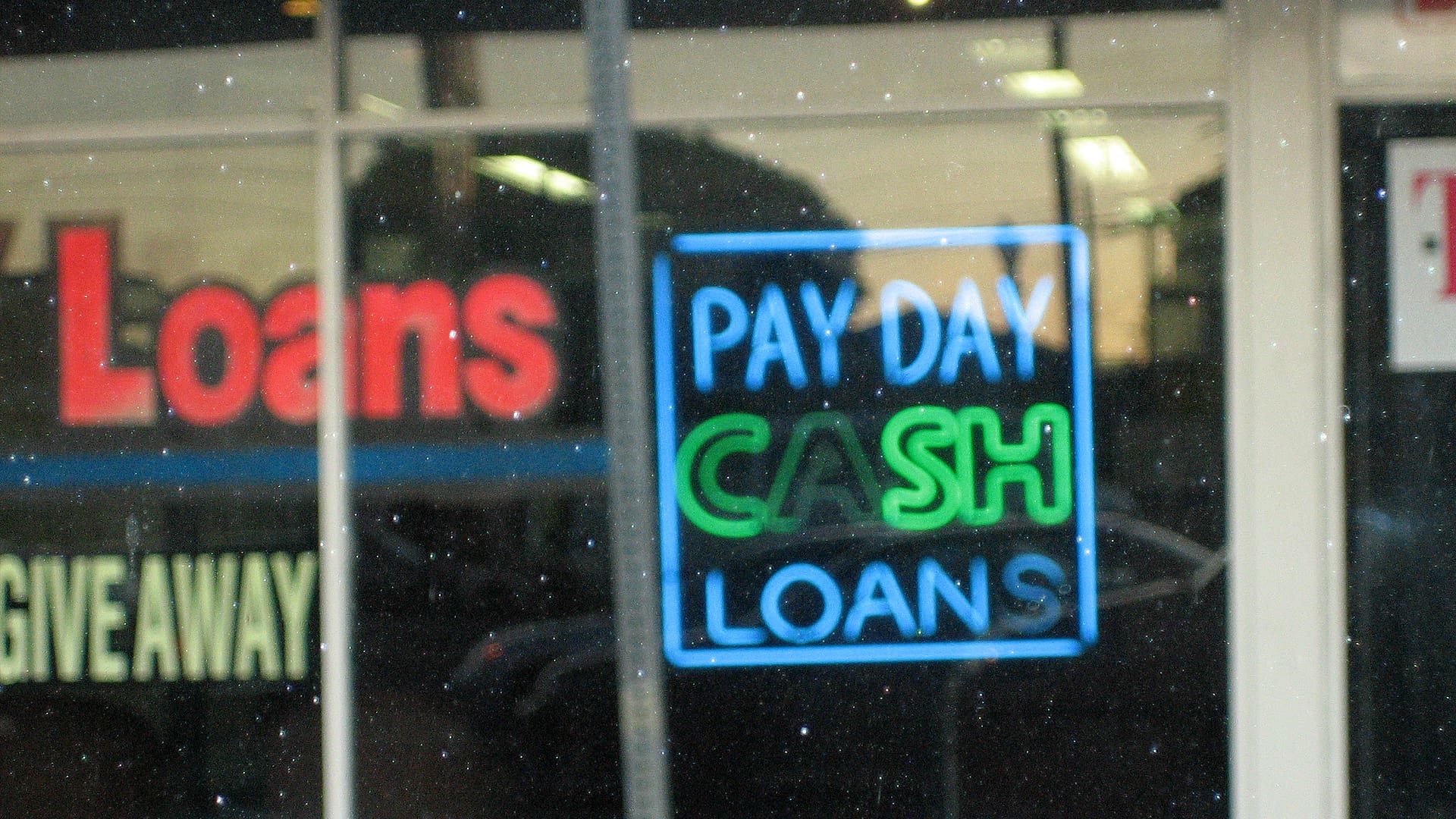You’re standing at the rental car desk in need of a car. But you didn’t plan to be here. You’ve been in an accident and you need wheels. You might feel gratitude for not being injured, for having auto insurance, and for having paid extra for rental car coverage on your policy. While you’re shaken up, you’re not really too worried: You’ve got options.
This is true even if the money you need to pay for the rental car isn’t in your checking account. You can put it on a credit card and pay it off when the insurance reimbursement comes through. You can take a deep breath and use the money you saved for a trip rather than an accident. Or you can call a family member or friend who can give you the funds until you pay them back from your next paycheck and send them a thank you note for their generosity. If it turns out your car is totaled and you need to replace it you’ll likely be able to get a low-interest auto loan from a bank, credit union, or even the dealer (if you have a job and credit rating).
These options should be recognized for what they are: unmerited gifts. They are what Robert Putnam calls “airbags,” that are immediately activated when an unanticipated crisis arises in the life of someone who is not poor. Social and financial capital—access to financial options and a network of friends or family who can easily and quickly share resources with you—act as cushions when the vicissitudes of life strike.
No Airbags
But consider the rental-car-after-accident scenario if you’re poor. The airbags of financial and social capital do not inflate automatically to protect you. You’re not sure how you’re going to come up with the resources you need right now. Your need for a car to keep your job or transport your kids is paramount. Other bills you’re supposed to pay will just have to wait until you figure it out.
And then you see a sign at the end of the rental car agency’s counter: Need $500? Tucked inside a plastic display are tri-fold brochures advertising CASH TODAY from a store in the same strip mall.
It seems to you not just a sign, but a miracle. You have no idea that you’re walking into a trap set for people like you.
Such is the genius of predatory payday lenders. They appear when you already feel you don’t have anywhere else to turn, promising to help right away.
Just Lending?
The reasons that someone who is poor might need fast cash and not be able to get it are often not the result of personal sin or outsized wants. Unexpected troubles of all kinds beset everyone, but the effects are more detrimental for the poor than the rich or even the middle class. The reality that need and resources are not always co-located is made manifest especially for the poor, even with strong networks of relationships. Friends and family may be immensely willing to help, but what if they don’t have the financial capital to do so? Banks don’t tend to extend small loans. Options to get financial help quickly are limited when you’re poor.
The payday lender trade association, Financial Service Centers of America (FiSCA), explains how they exist to solve this problem by describing payday loans as “small, short-term cash advances, which are a popular source of credit for Americans.”
Popular is an understatement. The Center for Responsible Lending notes that for every Starbucks in the United States, there are more than two payday lending storefronts.
FiSCA states that their members offer products to “bridge the need for small dollar, short-term credit when other options are limited, too expensive or unavailable.” And FiSCA describes their customers as those “who often are living paycheck to paycheck.”
One might argue that the free market exists to offer ready alternatives for moments like this. But that’s less than half of what should be said. Christian philosophers and economists have long argued that free markets are to be just markets. Within just markets, businesses rightly uphold their responsibilities as they seek to satisfy legitimate human needs and contribute to human flourishing as they profit. When rightly ordered, businesses operating in free markets impose limits on their own practices and operations such that their relationship to the rest of society’s institutions and to human beings reflects the end of satisfaction, rather than the more familiar word maximization regarding the making of profit. Rightly ordered businesses choose practices that reject profiting from the exploitation of human beings.
Despite their altruistic talking points, predatory payday lenders fail to meet these criteria.
Debt Slavery
Of the 12 million Americans who were trapped in predatory payday loans last year, two-thirds of payday borrowers showed up at a storefront needing a small loan, averaging $375. These borrowers were most likely not borrowing to cover the cost of an emergency like a rental car. About 69 percent used their loan to cover regular expenses they could not meet on their own. A study conducted by the Pew Charitable Trusts notes that the loans cover needs like “utilities, credit card bills, rent or mortgage payments, or food.”
Pastors and leaders of faith-based organizations who are working to address predatory payday lending have shared testimonials from borrowers who depict an application and approval process that takes as little as 15 minutes. Unlike traditional loans, there is no assessment by payday lenders of the ability of the borrower to repay. Instead, the process typically includes paperwork that asks borrowers to hand over the names and contact information for family and close friends, the contact information of the borrower’s employer, and the account information and authorization that allows the payday lender to make automatic withdrawals of payments electronically from the borrower’s bank account every two weeks.
Some borrowers have testified their loans were approved at a higher level than their original stated need. When a $300 loan request was approved at $500, borrowers described receiving paperwork to sign with the higher loan amount filled in. This practice dramatically increases the cost of the loan to the borrower, since interest is typically assessed at 15 percent for a two-week loan period.
Testimony also shows that the process includes a verbal reference to the loan terms and instructions to review the fine print. In compliance with federal law, these terms identify fees and interest separately. The Center for Responsible Lending notes that the borrower sees 50 percent of the loan value in fees, and then interest, stated as an annual interest rate between 391 to 521 percent on average. By contrast, today a good rate for a 30-year fixed mortgage is about 4 percent annual percentage rate (APR).
FiSCA states that their disclosures identify APR only because it is required by federal law. FiSCA calls the APR disclosure “an inefficient and inappropriate tool for calculating the cost of a payday advance,” stating that “payday advances are typically offered over a two-week period, not over a year.”
And here lies the rub. Payday loans are indeed sold as two-week loans, but studies conducted by the Pew Charitable Trusts tell a different story about their use: that “despite its promise of “short-term” credit, the conventional payday loan business model requires heavy usage to be profitable.” Data shows “borrowers actually are indebted for an average of five months.”
How does this happen? Often borrowers take out new loans at different storefronts in order to service the interest charges on their original loan. The Center for Responsible Lending notes that 90 percent of borrowers have five or more loans per year and 60 percent have 12 or more. Loans made each year to non-repeat borrowers account for just 2% of the payday loan volume.
Predatory payday lenders advertise to the public that they are providing a short-term solution to a temporary cash flow problem. But loans are made with the full knowledge that those who borrow have little hope of ever being able to repay. And employees of predatory payday lenders regularly call borrowers just before their loans are due to offer pre-approved loans for the amount due: the original loan plus fees and interest. The result is debt slavery. Indebted families are even less able than before their loan to pay their bills, to save for the next emergency, or to provide for their children.
Grinding the Faces of the Poor
Comment readers likely are familiar with biblical prohibitions against the charging of interest and the oppression of the poor. They may be less familiar with the longstanding Christian influence upon the legal tradition of nations to develop public policies that offer consumer protections against “the illegal action or practice of lending money at unreasonably high rates of interest.” In the United States, where they exist, usury laws are regulated at the state level. Yet, at the risk of oversimplifying, usury laws in the United States have been relaxed since the 1980s.
Part of the government’s calling is to promote public justice. For elected officials, this looks like developing and enacting a just legal framework for recognizing, protecting, and encouraging the full range of human responsibilities. This includes just treatment of economic activity and markets so businesses thrive and make their fullest contribution to human flourishing.
Yet when businesses operating in free markets fail to follow the prescribed norm of satisfaction by limiting their own practices, their relationship to the rest of society’s institutions and to human beings can become exploitative—businesses that contribute to the destruction of families, for example. In the case of predatory payday lending, government bears responsibility to enact just laws to protect citizens from this domestic injustice.
In fact much of today’s legislation violates this norm. For many legislators in states like Missouri, what has been signed into law is only a cap—set at 75% of the loan value—on the fees for predatory payday loans and a cap on interest allowed by law set at an astounding 1,950 percent APR. This is not likely to protect citizens from predatory lending; it is not public justice.
What’s more, reform advocates have documented the financial contributions of predatory payday lenders and their Political Action Committees (PACs) towards the campaigns of state legislators for years. And these contributions aren’t supporting only one party. In states where reforms are making their way towards legislative consideration, predatory payday lenders are among the top campaign contributors to both of the parties competing in the same election cycle. While efforts towards regulatory and rate reform are underway at the federal level, the documentation of campaign contributions by predatory payday lenders and their PACs towards the campaigns to both houses and parties of the U.S. Congress, including those who hold committee chairmanships important to the passage of reforms, is an open secret. The relationships between elected officials at every level and the campaign contributions of predatory payday lenders and their PACs, should be a cause for concern to every citizen and should be explored directly as part of a respectful conversation with legislators.
While advocates work towards more just laws, things get worse for those trapped in debt slavery. Borrowers who have lost their jobs, and as a result have stopped the automatic withdrawals on their checking accounts in order to avoid overdraft fees, have found that the law is on the side of the predatory lenders. While seeking to negotiate modified repayment plans with lenders, borrowers have reported to clergy and faith-based nonprofits discovering that they now may face the sheriff and the district attorney, who will bring felony theft charges against them on behalf of the predatory payday lenders. As recent experience from Texas shows, felony theft means two to twenty years of jail time and tens of thousands of dollars of fines. Is this justice?
Plundering the Poor . . . Even at Church
It is right to criticize politicians who fail to uphold public justice and to press for just laws and policies that seek to put an end to predatory lending. But ending predatory lending won’t come only from enacting just laws. It must also come through the reform of the church and the reshaping of hearts and minds.
Part of why debt slavery occurs is because the average user of payday loans is deeply ashamed of the situation they are in. At a recent gathering of Christian leaders working to end predatory lending, a pastor shared his experience of counseling a recently-separated couple and discovering that the wife took out a payday loan without her husband’s knowledge in an effort to keep up with the mortgage on the family’s home. The ongoing renewal of the payday loan contributed to the economic destruction of the family and the breakup of the marriage.
Faith-based nonprofit leaders also share stories of people with jobs who nonetheless repeatedly visit a food pantry before admitting to someone they were trapped, working for wages only going to service the interest payments on what had become thousands of dollars of payday loans.
It is recorded in the book of Acts that the early followers of Jesus sold their belongings, gave the proceeds to the Apostles, and that these assets were then “distributed to each as they had need.” But rather than turning to the church in times of need, borrowers often fear having to rely on others. Borrowers trapped in payday debt say that they sought the loans because they were taking care of their own business. They reported that they did not want to be a burden or become dependent upon other people or the government.
This is a long way from the church of Acts.
Predatory payday lenders actively exploit this sense of shame. They even advertise in order to activate it. One example, told by Galen Carey, vice president for government relations with the National Association of Evangelicals concerns how payday loan companies run television commercials in the weeks leading up to Christmas. The commercials ask parents if they are short this year on the cash they need to buy their children’s Christmas presents and then offers their services to help procure that cash.
These distortions exist within the church as well. Pastors and leaders of faith-based nonprofits report that the men and women of their congregations who work the counters of payday lenders believe they are engaged in acts of generous distribution aimed at helping people remain independent.
But the distortion that drove many pastors and faith-based nonprofit leaders to become active to end predatory payday lending was the discovery that members of their own congregations are the owners of some of the largest predatory payday lenders in America.
The words of Isaiah 3:14-15 come to mind: “The LORD enters into judgment with the elders and princes of His people, ‘It is you who have devoured the vineyard; The plunder of the poor is in your houses. What do you mean by crushing my people and grinding the faces of the poor?’ declares the Lord, the LORD Almighty.”
Principles for Just Lending
In May 2015, a diverse and surprising coalition of Christian groups came together to form Faith for Just Lending. The alliance was formed to introduce a set of principles for just lending and to offer citizens an opportunity to participate in a movement aimed at ending predatory payday lending. There is clear recognition at the outset that the work to be done is not only a matter of better business practices by lenders, but also the work of churches, families, and government to each uphold their responsibilities. The principles for just lending support the responsibilities of individuals to manage their resources responsibly; churches to teach and model responsible stewardship; lenders to extend loans at reasonable interest rates based on ability to repay within the loan period, taking into account the borrower’s income and expenses; and the responsibility of government to prohibit usury and predatory or deceptive lending practices.
What is clear is that churches must change the contours of the conversations with their members about such practices in a way that those participating in perpetuating debt slavery among their neighbors cease their current predatory practices. Christians must also press for legislative and regulatory solutions that uphold public justice.
The anticipated horizon for these changes is long. In the meantime, the role that many churches and faith-based nonprofits play in the lives of ensnared borrowers is to pay off their loans, to offer education, budgeting, and other assistance to try and change the circumstances that brought the borrower to seek the loan in the first place. This is indeed an immensely important act of rescue and it must continue.
But Christians must also address the urgent need for viable alternatives to predatory payday lenders, particularly those alternatives that can scale. Promising faith-based nonprofit alternatives like those offered by Grace Period, a local payday loan alternative, were determined to not be compliant with state banking regulations. Developing alternatives to predatory payday lenders is a place ripe for Christian thought and action, aimed at solutions that embody economic principles aligned with satisfaction and shalom.





